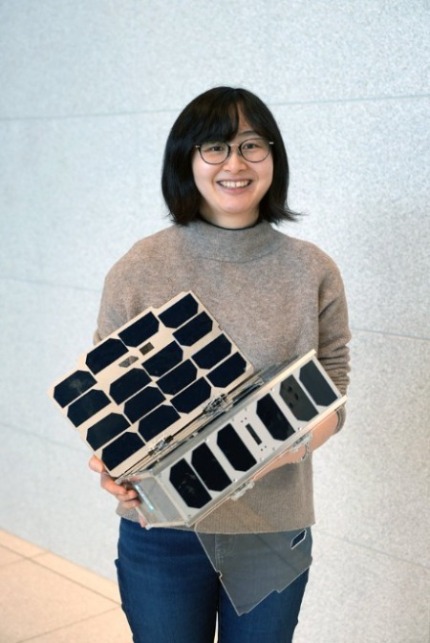Jun. 27, 2023
Watching spiraling disks in space
Mariko Kimura, Special Postdoctoral Researcher

Extreme Natural Phenomena RIKEN Hakubi Research Team, RIKEN Cluster for Pioneering Research
Please describe your role.
As materials around astronomical objects lose energy and angular momentum, and slowly spiral inward, they form accretion disks from accumulated gas, plasma, dust or particles. I am researching accretion disks that swirl around compact astronomical objects, such as black holes, white dwarfs and neutron stars. My targets are transient events related to these disks, such as a sudden brightening. If a transient event occurs, I observe the relevant star via x-ray and optical telescopes, and analyze the data to find out why. I also perform numerical simulations to try to explain the observed phenomenon.
Please describe your current research.
I study the physics related to the growth of binary stars composed of a compact object and a normal star. That binary system is the simplest astronomical system to feature accretion disks, so if we can understand them, we can try to understand more complex accretion systems. I do this by looking at them at x-ray, optical and radio wavelengths. Some binary systems can also be the source of gravitational waves, so measurements of their binary parameters will help future gravitational-wave research. I also study gamma-ray bursts, which could reveal the mechanisms of black-hole formation and the origin of heavy elements in our Universe.
How did you become interested in your current field of research?
I liked physics in high school, then at university I attended my first seminar on astrophysics. It seemed to me like the professors really enjoyed their research, which was fascinating. Later, I did graduate research with one of those professors, who is a specialist in accretion physics.

What has been the most interesting recent discovery in your field?
The detection of electromagnetic counterparts to gravitational-wave sources, emanating from the merger of neutron stars, was big news, and meant research on compact objects flourished. While my interest is accretion physics, I am also trying to identify astronomical candidates for future gravitational wave observations.
How has being at RIKEN helped your research?
I perform multi-wavelength observations. When I joined RIKEN as a special postdoctoral researcher in 2020, I finally had access to optical telescopes. However, I don’t have access to x-ray telescopes for multi-wavelength observations, so I also make observations and perform multi-wavelength analysis via data from my networks.
What excites you the most about your current research?
It is exciting when unexpected transient events occur and I find them in my data. I am then able to enjoy trying to understand the origin of these events via observations and simulations.
Rate this article
